大学英语综合教程2 Unit 2 Values PPT
- 格式:ppt
- 大小:173.50 KB
- 文档页数:2
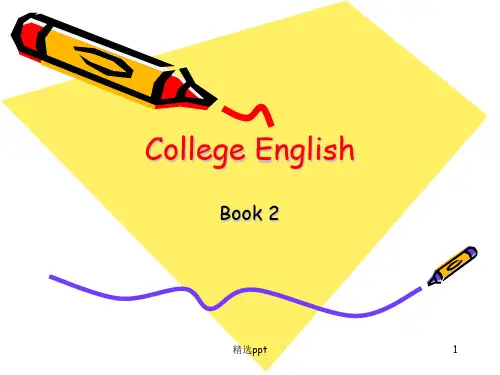
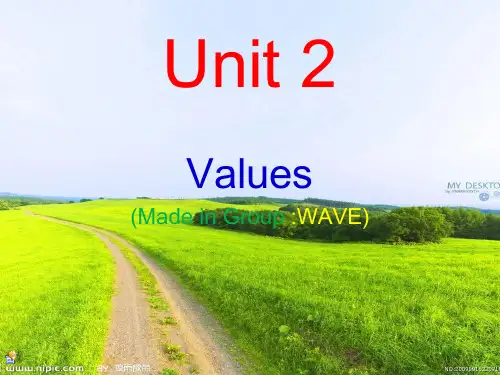
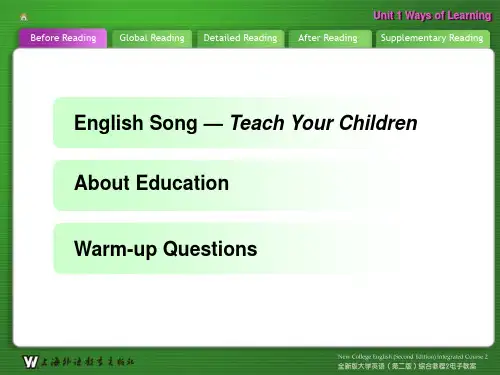
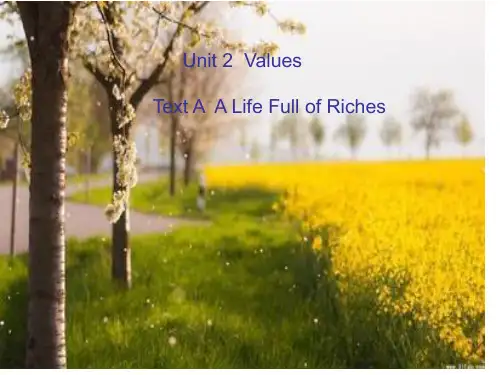
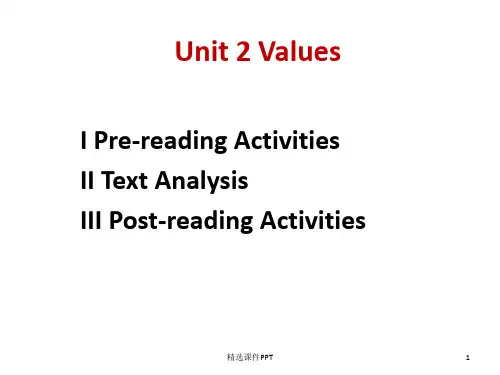
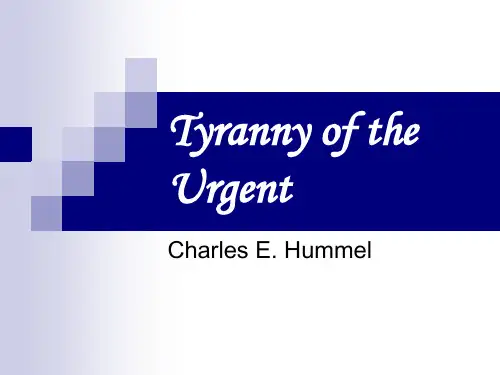
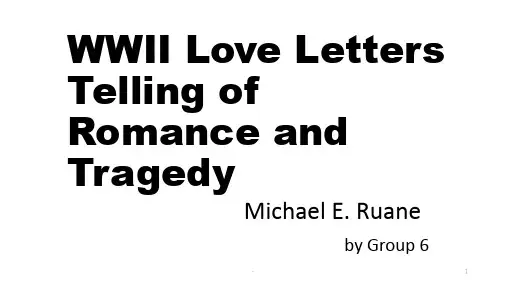

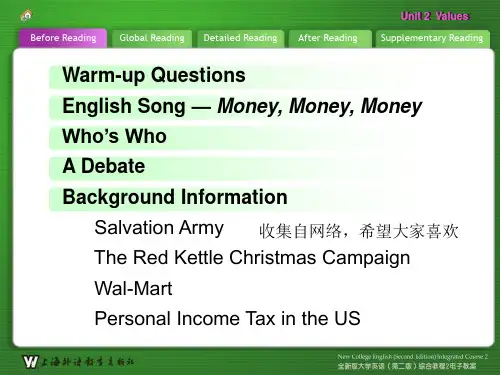
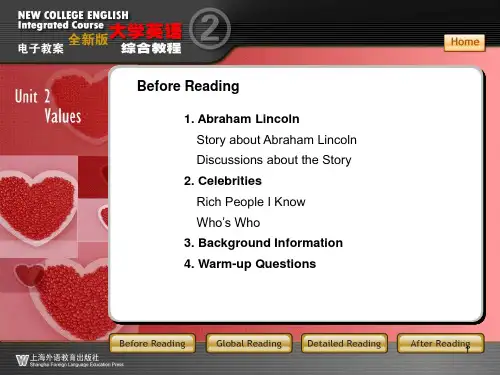
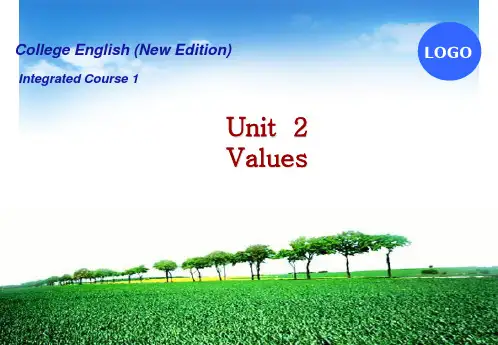
Unit 2 ValuesTeaching Aims:1.Understanding the main idea (one can live a life full of riches without being rich funancially)and structure of the text2.Appreciate the wording (riches) in the title of the text3.Grasp the key languge points in Texts A and learn how to use them in context4.Unerstand the cultural background related to the content5.Express themselves more freely on the theme of Values after doing a series of theme-relatedreading, listening, speaking, and writing activities6.Write an essay beginning with an anecdote or a piece of news, etc.Teaching Keypoints:1.Grasp the main idea of Text A and language points in Text A2.Cultural background in Text A3.Analysis of the difficult sentences in Text ATeaching Difficulties:1.Writing strategy and style demonstrated in Text A2.Write an essay with an anecdote or a piece of news, etc.Teaching Aids:Teaching, dicussion, exercises, group-activities, student-centredTeaching period: 12classesTeaching Procedure:Step 1Warming up1.Have students listen to the story about Abraham Lincoln before class, lead them to finish theexercises on page31, check the answer and explain.2.Have students learn more about the fact that economic development and personal incomecan’t always account for happiness.3.Do you think rich people must be happier than poor people? Why?4.Do you think a poor person can have a life full of riches? How?5.In class, students form two camps to debate the following issue: Mother Teresa has no money,but she took care of the poor in Calcutta until her death. Bill Gates gave a lot of money to charity, but he seldom works in the “frontline” with the poor. Does the world need more love like Mother Teresa’s or more money like Bill Gates’?Step 2 Global analysisi of Text A1. Division of the Text APart1: Paras.1-2T he writer’s encounter with a boy who raised the question “Are you poor?”Part2: Paras.3-12In search of an answer the writer finds that not having expensive possessions doesn’t make him feel poor mainly because he enjoys life in many other ways.Part3: Para.13In conclusion, the writer thinks he’s grown to understand more about himself because of the boy’s question.2.Understanding the main idea of the text with the help of the questions on page 37-38Step 3. Detailed leaning of Text A1. It was early December 2003, my first season as a Salvation Army bell ringer, when I was confronted with the questionWhat does a Salvation Army bell ringer do?To ring the bell and ask people to donate money to help the poor.2. confront: vt.1) (of a problem, difficulty, etc.) face (sb.) threateninglyThe difficulties that confront us seem insuperable.A major difficulty that confronts international students is how best to judge the quality of a program in a foreign university2) (of a person) face and deal with (a problem, difficulty, etc.)军人必须面对危险和死亡。